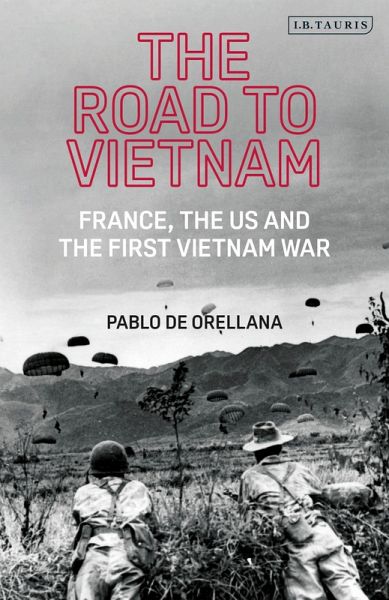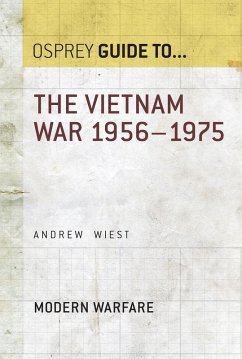
The Road to Vietnam (eBook, ePUB)
America, France, Britain, and the First Vietnam War

PAYBACK Punkte
13 °P sammeln!
Why did the USA become involved in Vietnam? What led US policy makers to become convinced that Vietnam posed a threat to American interests? In The Road to Vietnam, Pablo de Orellana traces the origins of the US-Vietnam War back to 1945-1948 and the diplomatic relations fostered in this period between the US, France and Vietnam, during the First Vietnam War that pitted imperial France against the anti-colonial Vietminh rebel alliance. With specific focus on the representation of the parties involved through the processes of diplomatic production, the book examines how the groundwork was laid f...
Why did the USA become involved in Vietnam? What led US policy makers to become convinced that Vietnam posed a threat to American interests? In The Road to Vietnam, Pablo de Orellana traces the origins of the US-Vietnam War back to 1945-1948 and the diplomatic relations fostered in this period between the US, France and Vietnam, during the First Vietnam War that pitted imperial France against the anti-colonial Vietminh rebel alliance.
With specific focus on the representation of the parties involved through the processes of diplomatic production, the book examines how the groundwork was laid for the US-Vietnam War of the 60's and 70's. Examining the France-Vietminh conflict through poststructuralist and postcolonial lenses, de Orellana reveals the processes by which the US and France built up the perception of Vietnam as a communist threat. Drawing on archival diplomatic texts, the representation of political identity between diplomatic actors is examined as a cause leading up to American involvement in the First Vietnam War, and will be sure to interest scholars in the fields of fields of diplomatic studies, international relations, diplomatic history and Cold War history.
With specific focus on the representation of the parties involved through the processes of diplomatic production, the book examines how the groundwork was laid for the US-Vietnam War of the 60's and 70's. Examining the France-Vietminh conflict through poststructuralist and postcolonial lenses, de Orellana reveals the processes by which the US and France built up the perception of Vietnam as a communist threat. Drawing on archival diplomatic texts, the representation of political identity between diplomatic actors is examined as a cause leading up to American involvement in the First Vietnam War, and will be sure to interest scholars in the fields of fields of diplomatic studies, international relations, diplomatic history and Cold War history.













